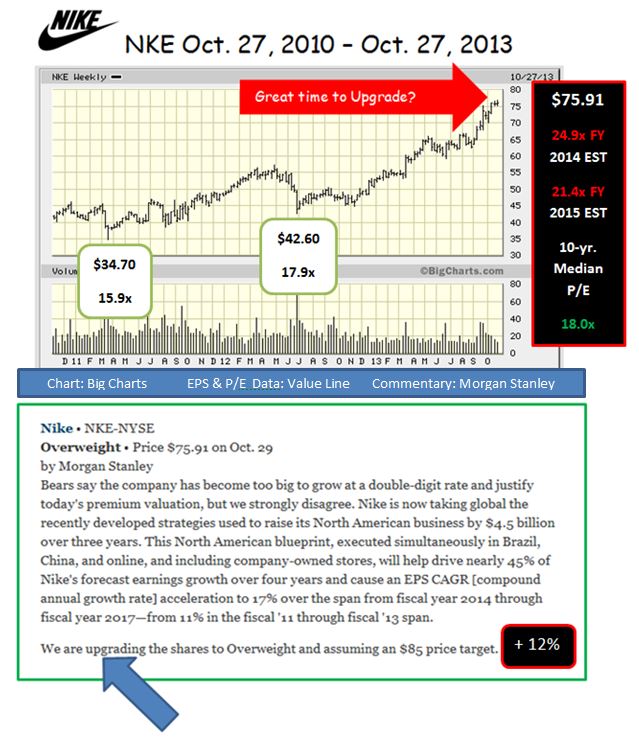Brokerage Analyst Actions – Good for a Laugh?
Our media-centric world exposes investors to a slew of information on a continuous basis. Most individuals don’t have the expertise, or desire, to evaluate stocks on their own. They often trust opinions that they see on websites or hear while watching CNBC, FOX Business or Bloomberg channels.
Unless you understand how analysts operate you might think the advice is worth listening to. Researchers want to appear smart when appearing on TV or radio. The best way to do that, in a risk-free manner, is to explain what has already happened. That is much easier than predicting the future.
If a stock has just doubled in price analysts justify the high price while implying they had previously loved and recommended it, when the shares were still cheap. Analysts often put ‘hot’ issues onto their buy lists after they’ve surged. They love to have people see BUY-rated, popular, good performing tickers on their top stocks list.
Conversely, experts would rather explain why a stock has fallen sharply than defend buying something that has recently cratered in price. Pummeled shares are often bargain-priced but it is risky defending bad looking charts on TV.
Don’t just take my word for this. Here are three examples including Morgan Stanley’s October 29th upgrade on Nike (NKE). Their client alert was republished in Barron’s Nov. 2, 2013 issue.
Nike was reset to OVERWEIGHT only after the stock made a new all-time high. After missing the move from $35 to $75, the analyst’s new target price ($85) is a mere 12% above the quote at the time of the opinion change.
Nike’s 10-year median P/E is 18x. The multiple at the time of Morgan Stanley’s upgrade was a 38% premium to that level based on the current estimate for the fiscal year ending next May.
NKE’s valuation appears rich even if FY 2015 estimates prove accurate.

Valuation-based services like Trefis and Morningstar, which rarely appear on CNBC, see Nike as overvalued. Trefis uses a sum-of-the-parts methodology to arrive at a fair value of $60.41, well below the current price. Standard & Poors figures an almost identical $60 valuation using a very different technique. Kudos to them for sticking to rational thinking regarding NKE.







